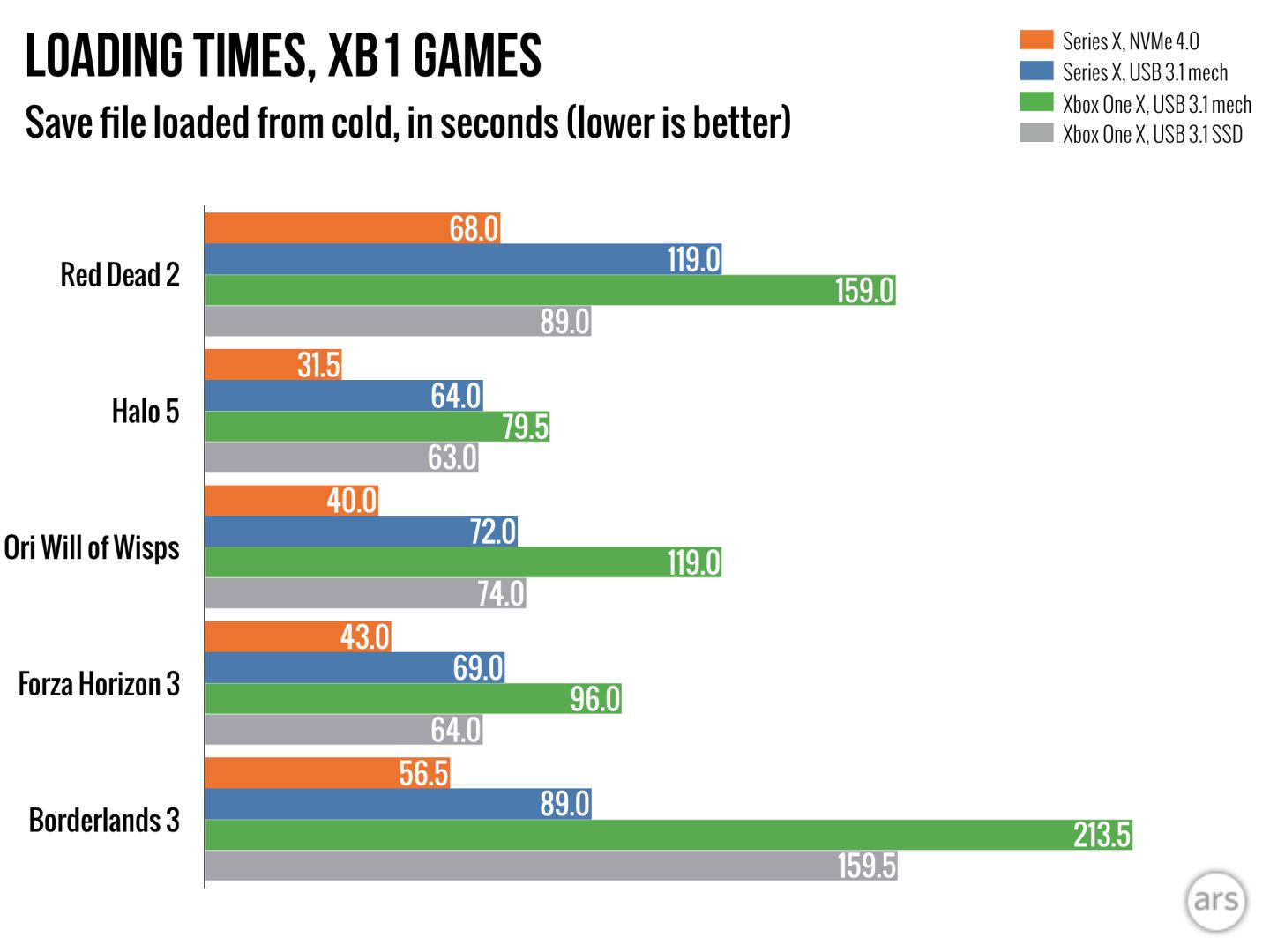Well I don't see it doing too much if it requires 30 secs+ to load a game.
https://news.xbox.com/en-us/2020/05/28/xbox-series-x-next-generation-backward-compatibility/Because its not being used on legacy software.
Backwards compatible titles also see significant reductions in in-game load times from the massive leap in performance from our custom NVME SSD which powers the Xbox Velocity Architecture.
https://news.xbox.com/en-us/2020/06/10/everything-you-need-to-know-about-the-future-of-xbox/
Backwards compatible titles also see significant reductions in in-game load times from the massive leap in performance from our custom NVME SSD which powers the Xbox Velocity Architecture.
From official site they say backwards compatible titles also use NVME SSD which powers the Velocity Architecture.


